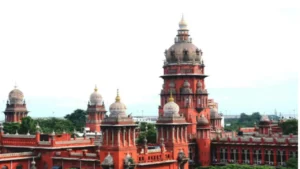Under the Criminal Procedure Code, 1973 (CrPC) in India, specific provisions are in place to prevent offences against public tranquillity. These provisions empower law enforcement authorities and judicial officers to take necessary actions to maintain peace, order, and harmony within society.
Section 129 of the CrPC empowers a police officer or any other authorized person to use necessary force, including the use of armed forces if required, to disperse an unlawful assembly that poses a threat to public peace and tranquillity. The force used should be proportionate to the circumstances and aimed at restoring public order.
State of Karnataka v. B. Padmanabha Beliya 1992 CriLJ 634, ILR 1991 KAR 2739, 1991 (2) KarLJ 11, it was held that if the police opened fire without legal permission, the families of the deceased were entitled to compensation from the state.
Under Section 130 of the CrPC, a magistrate, upon being satisfied that immediate action is necessary to prevent a breach of peace or disturbance of public tranquillity, can issue orders to maintain public order.
These orders may include the imposition of a curfew, restrictions on public gatherings, and other measures deemed necessary to prevent the occurrence of an offence against public tranquillity.
Under Section 131 of the CrPC, a police officer or a magistrate may conduct inquiries or examinations of suspected individuals to prevent offences against public tranquillity and allows for identifying and investigating potential troublemakers or individuals involved in activities that may disrupt public peace.
Section 132 of the CrPC enables a magistrate to require individuals to execute bonds, with or without sureties, to ensure their good behaviour and prevent any breach of peace or disturbance of public tranquillity. Failure to comply with the bond conditions may result in the forfeiture of the bond and legal consequences.
Under Section 133 of the CrPC magistrate can issue a conditional order to remove any public nuisance that may disrupt public tranquillity and aim at preventing or resolving issues that may lead to disturbances or breaches of the peace.
Section 144 of the Indian Penal Code provides for the punishment for being a member of an unlawful assembly armed with a deadly weapon.



